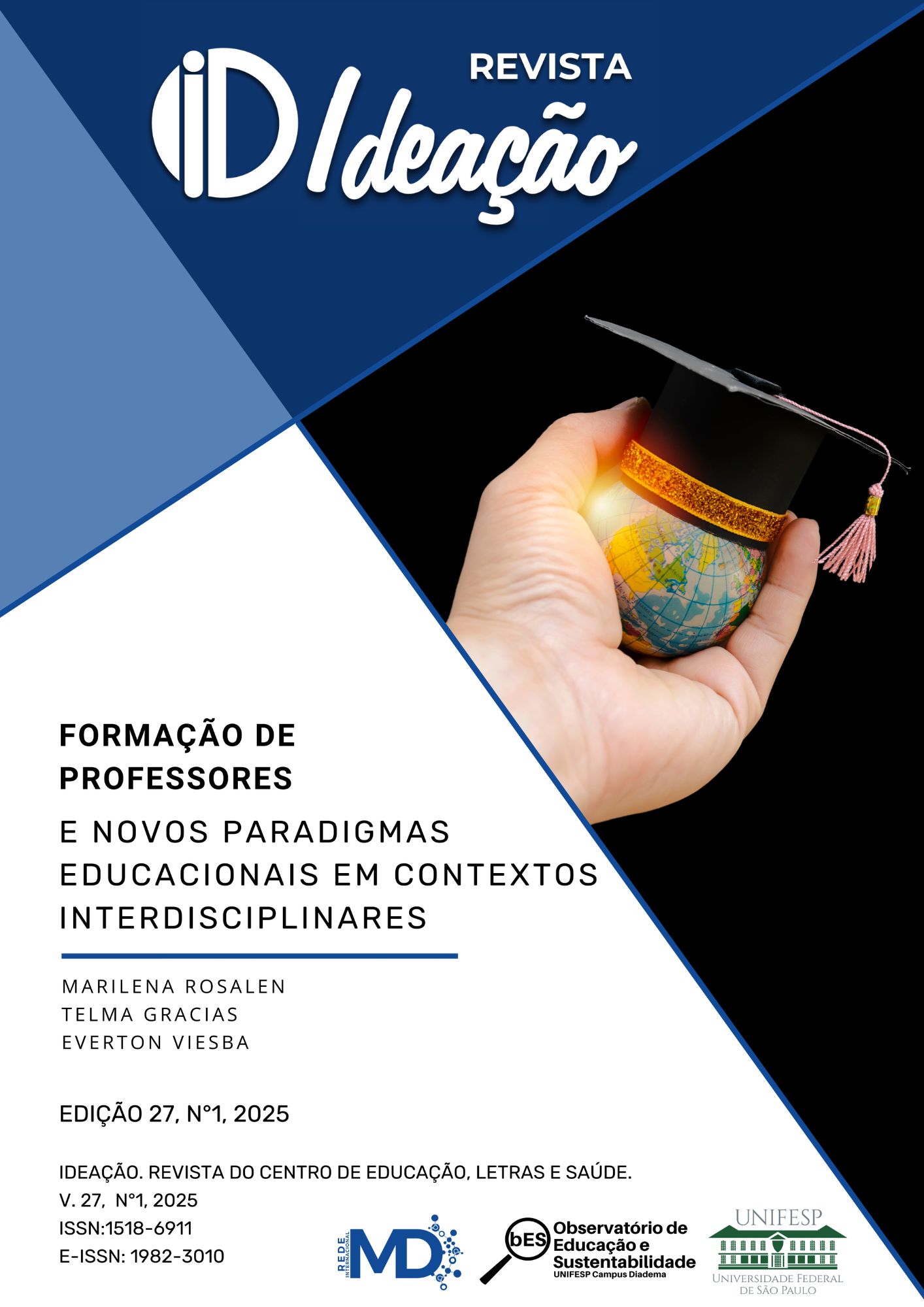TRANSFORMING TEACHER TRAINING
THE PODCAST AS A TOOL IN CONTEMPORARY EDUCATION
DOI:
https://doi.org/10.48075/ri.v27i1.34806Keywords:
Innovative Education, Collaborative Teaching, Educational PodcastAbstract
Contemporary education faces significant challenges, intensified by the COVID-19 pandemic, which highlighted the need for innovative approaches in educator training. In this context, the project "Ten Charms of the Teaching Profession" proposes the creation of a podcast that explores the positive aspects of teaching in an accessible and inspiring way. Through conversations with professionals in the field, the podcast discusses crucial themes such as welcoming, care, transformation, and empathy in education. The methodology adopted involved rigorous stages, starting with the selection of relevant topics based on the experiences of teachers and the current demands of the educational environment. The theoretical references used include Cristiano (2021), Tenani (2023), Freitas et al. (2024), among others. The educational potential of the podcast is manifested in various applications. It is used in face-to-face classes and virtual environments, as complementary material and a reflective tool for teachers in initial or continuing education. The format offers flexibility and reproducibility, allowing educators to adapt the content. In summary, "Ten Charms of the Teaching Profession" serves as a valuable training tool, while also fostering a support network among educators, highlighting the importance of collaborative dialogues and new formats for the improvement of teaching practices.
Downloads
Published
How to Cite
Issue
Section
License
Copyright (c) 2025 Direitos partilhados conforme licença CC BY-NC-SA 4.0

This work is licensed under a Creative Commons Attribution-NonCommercial-ShareAlike 4.0 International License.
Authors who publish in this journal agree with the following terms:
1. Authors maintain copyright and grant the journal the right of first publication, with the work simultaneously licensed under the Creative Commons Attribution License that allows the sharing of the work with recognition of authorship and initial publication in this journal.
2. Authors are authorized to assume additional contracts separately, for non-exclusive distribution of the version of the work published in this journal (e.g., to publish in an institutional repository or as a book chapter), with acknowledgment of authorship and initial publication in this journal.
3. Authors are allowed and encouraged to publish and distribute their work online (e.g., in institutional repositories or as a personal page) at any point before or during the editorial process, as this may generate productive changes, as well as increase the impact and citation of the published work (See The Effect of Free Access).
Creative Commons License
This work is licensed under a Creative Commons Attribution-Noncommercial-ShareAlike 4.0 International License, which permits sharing, copying, distributing, displaying, reproducing, the whole or parts provided it has no commercial purpose and the authors and source are cited.


